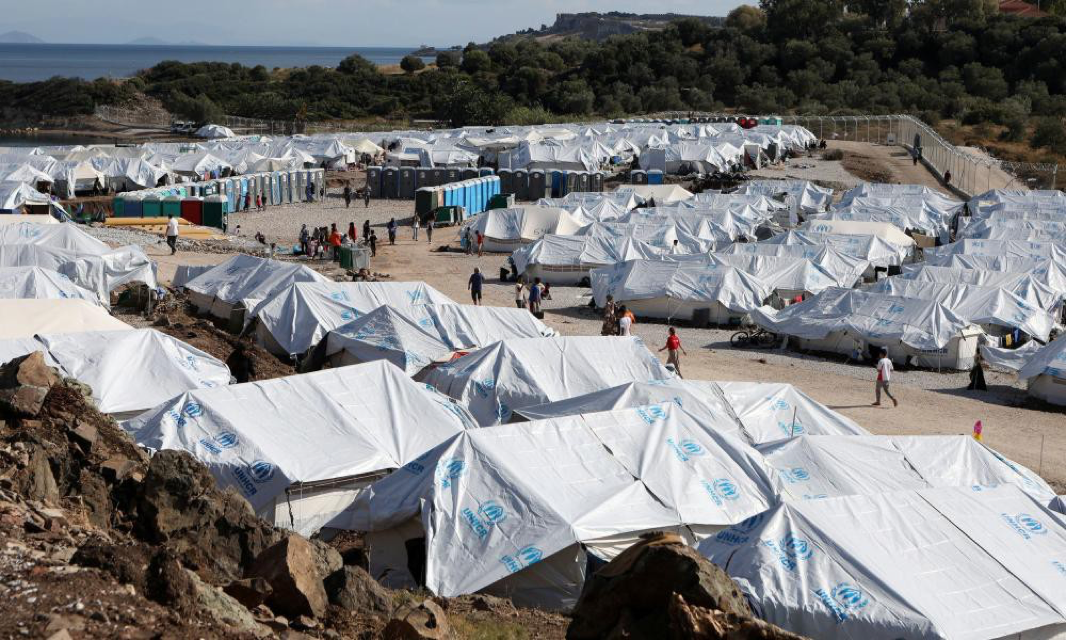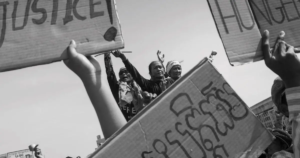One in three on Aegean isles have contemplated suicide amid EU containment policies, report reveals
Years of entrapment on Aegean islands has resulted in a mental health crisis for thousands of refugees, with one in three contemplating suicide, a report compiled by psychosocial support experts has revealed.
Containment policies pursued by the EU have also spurred ever more people to attempt to end their lives, according to the report released by the International Rescue Committee (IRC) on Thursday.
“Research reveals consistent accounts of severe mental health conditions,” says the report, citing data collated over the past two and a half years on Lesbos, Samos and Chios.
Depression, post-traumatic stress disorder (PTSD) and self-harm “among people of all ages and backgrounds” have emerged as byproducts of the hopelessness and despair on Europe’s eastern borderlands, it says.
“As many as three out of four of the people the IRC has assisted through its mental health programme on the three islands reported experiencing symptoms such as sleeping problems, depression and anxiety,” its authors wrote.
“One in three reported suicidal thoughts, while one in five reported having made attempts to take their lives.”
In a year upended by coronavirus and disastrous fires on Lesbos – about 13,000 asylum seekers were temporarily displaced after the destruction of Moria, the island’s infamous holding centre – psychologists concluded that the humanitarian situation on the outposts had worsened considerably.
The mental health toll had been aggravated by lockdown measures that had kept men, women and children confined to facilities for much of 2020, they said.
Previously, residents in Moria, Europe’s biggest refugee camp before its destruction, had participated in football games outside the facility and other group activities.
Noting that the restrictions were stricter for refugees and migrants than those applied elsewhere in Greece, IRC support teams found a marked deterioration in the mental wellbeing of people in the camps since rolling lockdowns were enforced in March.
“Research demonstrates how the onset of the Covid-19 pandemic further exacerbated the suffering of already vulnerable asylum seekers and exposed the many flaws in Europe’s asylum and reception system,” the report says.
Over the year there has been a rise in the proportion of people disclosing psychotic symptoms, from one in seven to one in four. Disclosures of self-harm have increased by 66%.
The IRC, founded by Albert Einstein in 1933 and now led by the former British foreign secretary David Miliband, said the findings offered more evidence of the persistent political and policy failures at Greek and EU level.
Five years after authorities scrambled to establish reception and identification centres, or hotspots, on the frontline isles at the start of the refugee crisis, about 15,000 men, women and children remain stranded in the installations.
Describing conditions in the camps as dangerous and inhumane, the IRC said residents were still denied access to sufficient water, sanitation, shelter and vital services such as healthcare, education and legal assistance to process asylum claims.
On Lesbos, the island most often targeted by traffickers working along the Turkish coast, government figures this week showed an estimated 7,319 men, women and children registered in a temporary camp erected in response to an emergency that has been blamed on arsonists.
Three months after the fires, more than 5,000 people have been transferred to the mainland, according to Greek authorities.
Of that number, more than 800 were relocated to the EU, including 523 children who had made the journey to Europe alone and were also held in Moria.
Many had hoped the new camp would be a vast improvement on Moria, whose appalling conditions and severe overcrowding earned it global notoriety as a humanitarian disaster.
But the new facility, located on a former firing range within metres of the sea, has drawn condemnation from locals and NGOs.
“The winds hit it, the rains hit it and there’s no shade, which is why this place is unsuitable for any camp to be,” the island’s mayor, Stratis Kitilis, said.
“It’s right next door to all the warehouses, transport companies and supermarkets that keep Lesbos going. No one wants it there.”
This month the EU announced it was working with Athens’ centre-right administration to replace the installation with a modern structure that will open next September. New reception and identification centres will also be built on Samos, Kos and Lesbos. “They say it’ll be nothing like Moria and will be more of a transfer stop, but late next year is a very long time,” said Kitilis.
Kiki Michailidou, the psychologist in charge of the IRC’s psychosocial support programmes on Lesbos, agreed that the conditions were far from dignified.
As winter approached, camp residents were resorting to ever more desperate measures to keep warm, she said, while also being forced to stand in long queues for food and communal toilets.
With camp managers moving families into giant tents, social distancing remains elusive. “A lot of people fear the unknown again,” Michailidou said.
“Moria was terrible but it was also a familiar place, somewhere they called their home. After the fires they lost their point of reference and that has had a significant impact on their mental health too.”
The IRC report calls for European policymakers to learn from past failings. While the EU’s new pact on asylum and migration is a step in the right direction, it says, it still falls short of the bloc managing migration in a humane and effective way.
Echoing that sentiment, Michailidou said: “After the fires we saw what could happen. There were transfers to the mainland and children were relocated to other parts of Europe. That’s proof that where there’s political will and coordinated action, the lives of people in these camps can be transformed.”




